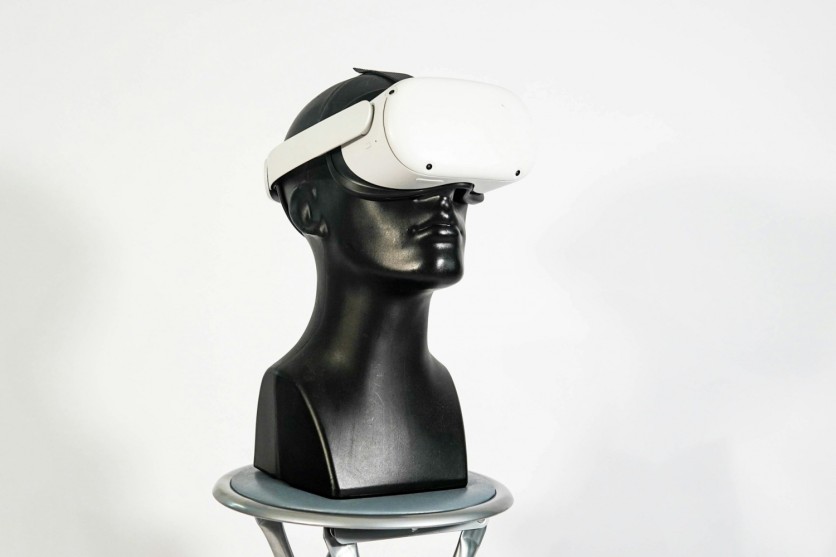Meta, the tech giant behind the Oculus Quest, has filed a patent that strongly resembles Apple's Vision Pro's EyeSight feature, as spotted by 9to5Mac. This move has sparked debate about whether Facebook's parent company is simply copying its competitor or exploring new avenues for VR interaction.
EyeSight is a Controversial Feature

Apple introduced EyeSight with great fanfare, promising to bridge the gap between VR users and the physical world. This feature uses facial scans to project virtual eyes onto the headset, creating a sense of presence.
"We developed EyeSight, because we knew more than anything, if we were going to cover your eyes, that takes away much of what is possible when you connect with people. Getting that right was at the core of the concept of the product because we wanted people to retain those connections in their actual world," the Cupertino tech giant said.
However, initial reviews and user experiences have been less than enthusiastic, with many critics deeming it unnecessary and even counterproductive.
Related Article : YouTuber Creates Cheaper Alternative of Apple Vision Pro Using Materials From Secondhand Store
Meta's Patent: A Replication or Evolution?
Despite the lukewarm reception of EyeSight, Meta has chosen to pursue a similar path. The company's patent, titled "Embedded Sensors in Immersive Reality Headset to enable Social Presence," outlines a system that closely mirrors Apple's approach, according to Patently Apple.
While patent law protects methods rather than ideas, the striking similarity between the two concepts raises eyebrows about Meta's intentions.
It's possible that Meta sees potential in the underlying technology and aims to refine it for a more effective implementation. By incorporating additional sensors for health monitoring, the FB maker might differentiate its version of the feature and offer unique value to users.
Ultimately, the success of any VR feature hinges on its ability to enhance the user experience. If Meta can overcome the challenges that plagued EyeSight, it could potentially revolutionize social interaction in virtual environments. However, the company must tread carefully to avoid repeating Apple's mistakes.
When it comes to Vision Pro sales, Tech Times wrote in its latest report that the sold units for the most recent quarter will likely decline by 75%. Although the international expansion for Apple's virtual-reality headset has happened, it does not mean that it's guaranteed a top-selling wearable for consumers.
It appears that its high price tag is a barrier for some buyers who want to purchase it. Because it's more expensive than the other models in the market, people seek other options.
If Apple wants to compete with other VR headsets, its pricing for its product should be competitive with other brands. As expected, a new roadmap emerged online, stating that the iPhone maker will release a budget version of the Vision Pro.
The information was shared by Bloomberg writer Mark Gurman who said that the cheaper Vision Pro alternative is codenamed N107. For you to use it, you need to connect it to an iPhone or a Mac device.





